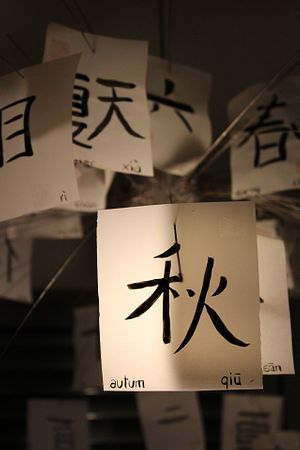On the eve of the Belt and Road Forum to be held in Beijing, Tian Xuejun, the Chinese vice minister of education, said on Thursday that Mandarin has become one of the most important languages of communication between China and the countries involved in the One Belt, One Road (OBOR) initiative.
Tian said increasing numbers of people in Belt and Road nations are learning the language, which has played a key role in boosting relations.
“As of March, 137 Confucius Institutes and 131 Confucius Chinese-language study classes had been established in 53 Belt and Road countries, with more than 460,000 people in these countries studying Chinese,” he said.
Tian said international exchange students are ambassadors for different cultures and civilizations. He said that the Chinese government will increase support for students, especially those from OBOR nations, who study in China.
The apparent use of the OBOR as a platform for soft power is in line with an agenda set by the China’s ruling Communist Party chiefs in 2011, when they approved a plan on cultural reform that sought to maintain internal security and boost China’s influence abroad. In a document released after a closed-door meeting in 2011, the party stressed the need to strengthen awareness of what it called “the perils and risks” of protecting China’s cultural identity. At the meeting, China’s communist leaders stressed not only the important role culture plays in the development of national unity, creativity, and competitiveness, but also the need to enhance China’s soft power abroad and its influence on international affairs.
The Confucius Institute is the China Ministry of Education’s quasi-official, non-profit public educational organization aimed at promoting Chinese language and culture internationally. Confucius Institutes also implement cultural exchange programs and provide approved teachers to educational institutions, from elementary to tertiary schools, around the world.
However, the institute has been criticized by international media in recent years, and is seen as something of a Trojan Horse. The institutes often provides funding, teachers, and educational materials to host institutions, which has raised the subject of academic influence and the subsequent impact on academic freedom through funding pressures. Critics have also raised the specter of industrial espionage.
In 2013, McMaster University in Ontario, Canada closed its Confucius Institute after a teacher filed a formal complaint alleging that the university was “giving legitimization to discrimination” because her contract with the institute prohibited her spiritual practice of Falun Gong, a banned organization in China. In 2014, the University of Chicago closed its Confucius Institute after more than 100 faculty members signed a petition that said its existence “subjects the university’s academic program to the political constraints on free speech and belief that are specific to the People’s Republic of China.”

































